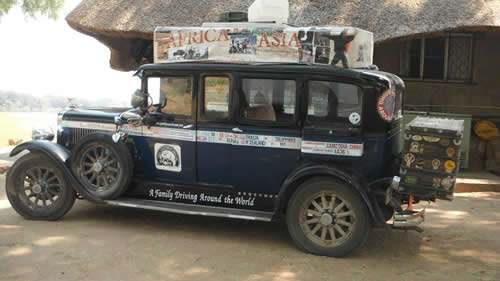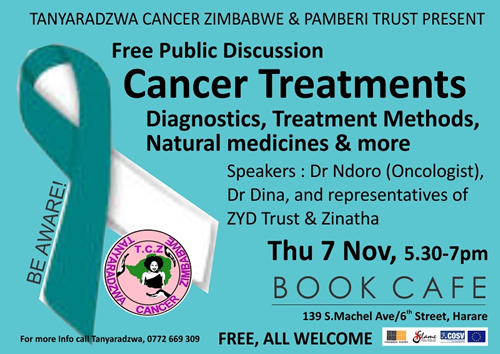The Zimbabwe I want
Friday, November 8th, 2013 by Bev ClarkHere’s an important contribution to the discussion on democracy in Zimbabwe. Vince Musewe is an economist and author based in Harare – his contact email address is at the end of his article.
Never, has so much been owed by so few to so many.
My name its Vincent Tichafa Musewe, I am an African who by God’s design, was born here in Zimbabwe so that after I am gone, this place will be a better place because I have lived. After all that is true leadership.
I therefore must share with you my idea of Zimbabwe. It is not what I see today.
We must revive our economy as a matter of urgency but more important, we must tell a new story about our beautiful country. We must invest a new narrative, a new paradigm so that out of our bosom, may be born a new beginning where all Zimbabweans regardless of race can live up to their full potential.
We must hurry and be gripped by the creation of those circumstances we desire most without being cowered or being afraid. After all, fear is a mental construct.
We must create a country where all are free to pursue their dreams without limit; a country whose unimaginable wealth can be utilized to eradicate poverty and lack; a country whose resources are applied to the benefit of all and not to the benefit a few men and women simply because they have access to arms of war.
My ideas and inspirations in creating a new Zimbabwe are based on one undeniable truth; that any nation that does not create freedom and liberty for its citizens to live up to their full potential will in turn, never attain its own full potential. The people must come first and their happiness and development must therefore be nourished, protected and preserved so that our country can truly become what we imagine it to be.
The dignity, security and prosperity of every Zimbabwean enshrined in our constitution were not fashioned to be applied at the whim of our leaders, but these are non negotiable rights for everyone born Zimbabwean. It is a non negotiable instrument that cannot be returned to sender. We must demand that this government meets its obligations.
In my opinion, no economic blue print no matter how clever and intelligent it may sound can ever create the conditions necessary for progress until the values of those that lead us change. Economic blue prints hardly excite me simply because we have had so many of them. Let us therefore be careful and not be complacent because the days are dangerous.
To our politicians:
I do not care how many degrees you may have; how many doctorates and academic accolades you may lay claim on, if I see young Zimbabwean girls in South Africa or in Harare becoming prostitutes to make a living so that they may feed their children back home.
When I see small burnt children at a hospital that cannot treat them because there are no medicines, I don’t care what car you drive.
When I hear that Zimbabweans are fighting off animals for fruit so that they may have something to eat, I do not care where you live or what designer suit you are wearing.
I care less for the sophisticated English words you may use in justifying your entitlement to power when I know that my brothers and sisters in the Diaspora must take three jobs so that they may survive and also look after their siblings at home.
When pensioners who worked for half of their lifetime cannot buy food, I am not impressed by the way you walk or talk.
I care less for the balance in your bank account when I hear that a large number of young mothers are dying from cervical cancer or that two million Zimbabweans will go hungry this season. When I see desperate youth wonder how each day will turn out because they are unemployed.
What use are your degrees in history, philosophy, rocket science, medicine, politics if those degrees lead to wide spread poverty, depression and hopelessness? What use are they when we know we in Zimbabwe have some of the largest mineral resources on earth including vast fertile soils yet we are facing an economic calamity? They are useless.
Never, in my opinion, has so much been owed by so few to so many.
The Zimbabwe I seek to create will have none of this.
Unfortunately I do not see this Zimbabwe I dream of coming tomorrow. I know, however, that it is buried deep down within my soul and it was born the day I was born in Highfield. God willing, it will surely come to pass in my life time.
All we need is now is hope and a strong belief in our potential but this hope must be underpinned by action; action to do what we can from where we are with what we have to create the circumstances we deserve.
We must accelerate the creation of a new Zimbabwe that is not limited by the imagination of those that only seek personal benefit but a Zimbabwe of unlimited potential underpinned and fashioned by the free spirit of the people of Zimbabwe.
It will take a while but I am convinced that one fine day, in the steal of the night it will come.
Don’t give up!
Vince Musewe is an economist and author based in Harare. You may contact him on vtmusewe [at] gmail [dot] com











